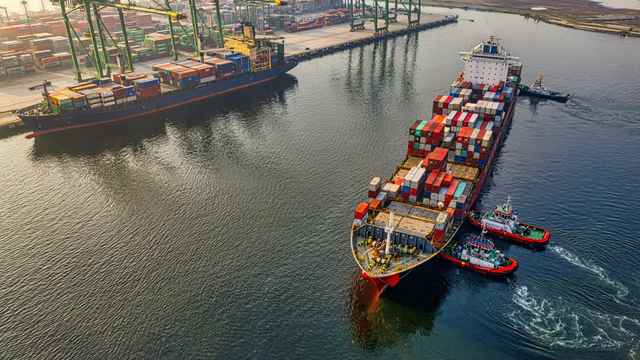
Port jokes
Q: Why do Norwegian ships have bar codes on them?
A: So when they come into port they can Scan-Da-Navy-In!
Why does the Norway navy have barcodes on the sides of their ships?
So when they return to port, they can Scandinavian.
A sailor drops anchor in a port and heads into the nearest pub. Everyone in the pub is whispering and pointing at him because of his odd-shaped body; he has a very muscular body, but a very tiny head on his shoulders.
As he orders his drink, he tells the bartender, "I'll explain. I get this in every port and town I visit. I caught a mermaid and she granted me three wishes if I would release her back into the sea. So I told her I wanted a yacht and, sure enough, she came through for me. Next, I asked for a million bucks and now I am set for life. Last of all, I asked her if I could have sex with her and her response was, 'I don't know how you can make love to me with your type of body.' So I asked her, 'How about a little head?'"
Why do Swedish warships have barcodes on them?
So that when they return to port, they can Scandinavian.
Why do they put barcodes on the ships in Norway?
Why?
So when they come into port, they can Scan-de-navian.
I don't blame Amber Heard for wanting Elon Musk, especially if Johnny Depp is hairy and smells like a port-o-potty full of cigarettes and gunsmoke.
There's 3 words in important: I'm, port, ant.
The best way to enjoy Port Arthur is to shoot through--a quote by hilarious comedian Isaac Butterfield.
For centuries, Japan’s feudal dictators, called Shoguns, enforced strict laws that kept people from leaving or entering the country. This practice isolated Japan from the rest of the world. By the middle of the 19th century, Japan’s isolationism was creating problems for the United States’ whaling industry whose ships needed coal, food, and water available in Japanese ports. And sailors who were shipwrecked on the coast of Japan needed protection from mistreatment.
In November 1852, President Millard Fillmore sent an expedition to Japan to solve these problems. Led by Commodore Matthew C. Perry, the expedition had both steam-powered and sail-powered warships and several hundred men. Perry’s task was to persuade the Japanese to sign a treaty with the United States that would open Japanese ports and protect shipwrecked sailors. On July 8, 1853, the Perry expedition sailed into Edo Bay about thirty miles from the city of Edo (modern Tokyo).
During talks with the Shogun’s representatives, the idea of a treaty was repeatedly rejected. But Perry didn’t give up. Finally, in February 1854, the Japanese agreed to negotiate a treaty. The Treaty of Kanagawa established peace between the two countries, opened two ports to U.S. shipping, and protected shipwrecked sailors. It was signed on March 31, 1854.
Perry’s expedition also opened Japan to the rest of the world. Within two years, Japan signed similar treaties with Russia, Holland, and Britain.
Walked into a bar the other day and a group of sailors were being loud and shouting about all the women they have in port that had given them gonorrhea...
Bloody seamen.